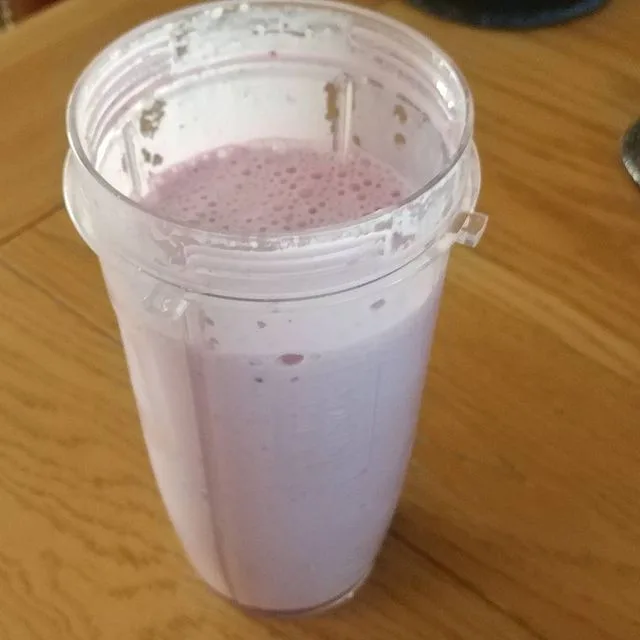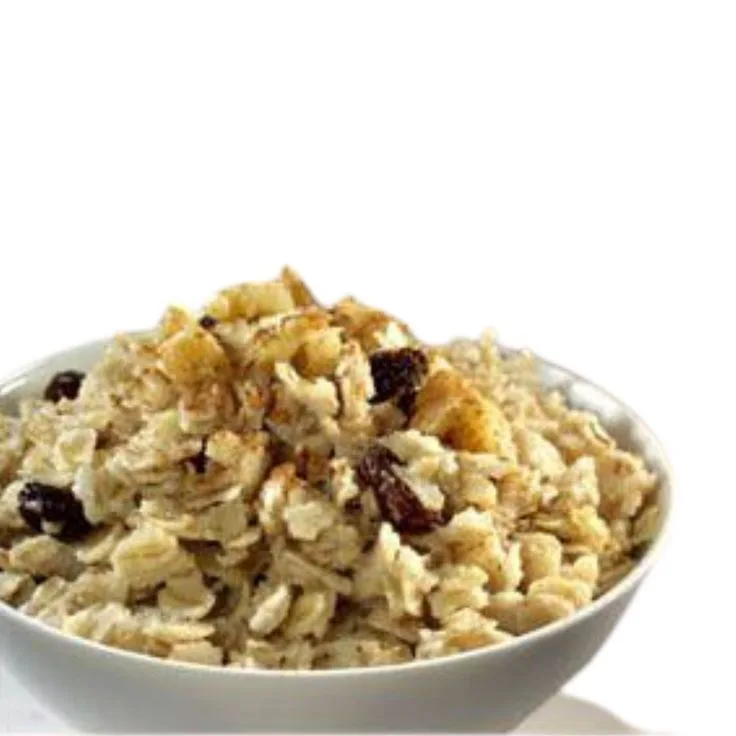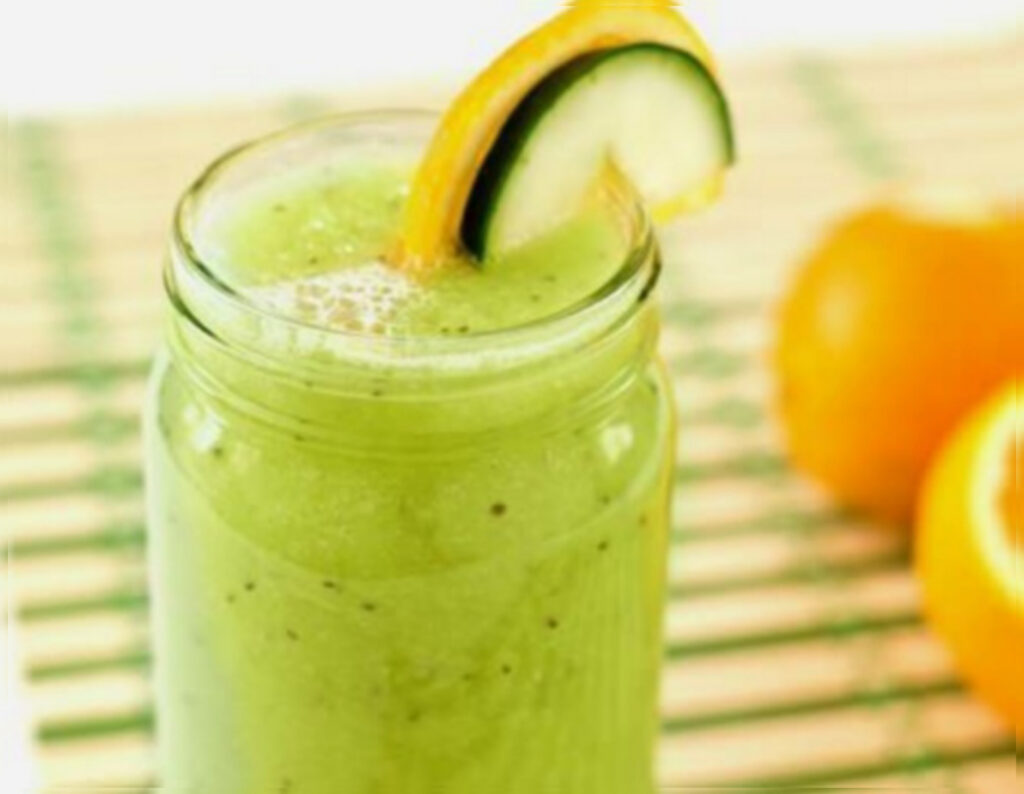This morning smoothie recipe is a delicious and nutritious way to start your day.
It’s made with ripe banana, frozen berries, orange juice, yogurt, and spinach or kale, blended together to create a thick and creamy smoothie.
The Morning Smoothie Recipe is also low in calorie and sugar, making it a good option for people trying to watch their calorie or sugar intake.
It’s also suitable for different dietary restrictions, such as dairy-free and vegan. And, it can be a good option for weight loss plans.
How to make Morning Smoothie Recipe
The Morning Smoothie Recipe is simple and easy to make, and can be customized to suit your taste preferences and dietary needs.
The smoothie is high in vitamin C, vitamin A, and calcium, and it’s a good source of energy and nutrients to kick-start your day. It’s also gluten-free, low-calorie and low-sugar, making it a great option for people with different dietary restrictions.
Morning Smoothie Recipe
Equipment
- 1 Blender A blender is necessary to blend the ingredients together and make the smoothie. Any type of blender will work, whether it's a high-power blender or a basic one.
- 1 Measuring cups and spoons To ensure accurate measurements of ingredients.
- 1 Cutting board and knife To slice the banana, if using fresh one.
- 1 Glass or container To serve the smoothie.
- 1 Spoon or straw To stir or drink the smoothie.
Ingredients
- 1 Medium-sized Banana peeled and sliced
- ½ cup Frozen berries (such as strawberries, blueberries, raspberries, etc.)
- ½ cup Yogurt dairy or non-dairy
- ½ cup Orange juice
- ½ cup Spinach or kale washed and chopped
- 1 tsp Honey
Instructions
- Peel and slice the banana.
- In a blender, combine the banana, frozen berries, yogurt, orange juice, spinach or kale (if using), and honey (if using).
- Blend on high until smooth and well combined, about 1–2 minutes.
- Enjoy your delicious smoothie!
Notes
Nutrition fact
The nutrition facts for this morning smoothie recipe will vary depending on the specific ingredients used and the serving size. Here is a rough estimate of the nutrition facts based on the recipe as written above:
- Calories: 200 – 250
- Protein: 4 – 8g
- Carbohydrates: 45 – 50g
- Fiber: 3 – 4g
- Fat: 2 – 4g
- Sugar: 20 – 25g
- Vitamin C: 50 – 60% daily value
- Vitamin A: 10 – 15% daily value
- Calcium: 8 – 10% daily value
Note that these are rough estimates and the actual nutrition facts may vary depending on the brands and types of ingredients used. Also, if you add more ingredients like nuts, seeds or protein powder, it could affect the overall nutritional value of the smoothie.
It’s always a good idea to check the nutrition facts of the specific ingredients you are using to get a more accurate picture of the nutritional value of your smoothie.
Tips
Here are some tips to make the most out of this morning smoothie recipe:
- Use ripe fruits: Ripe fruits are sweeter and will give your smoothie a better flavor.
- Experiment with ingredients: Feel free to add or replace ingredients to make the smoothie more personalized and suit your taste preferences.
- Keep it cold: To keep your smoothie cold, add a few ice cubes or use frozen fruits and vegetables.
- Adjust the thickness: If your smoothie is too thick, add more liquid (milk, water, or juice) to make it more drinkable. If it’s too thin, add more fruits or vegetables to thicken it up.
- Add some greens: Adding greens like spinach or kale to your smoothie can boost the nutrient content and add a nice color.
- Sweeten to taste: Start with minimal sweeteners, then adjust to your taste. If you use sweet fruits like banana, you might not need much sweetener.
- Make it in advance: You can prepare the ingredients the night before and store them in the fridge, so it’s ready to blend in the morning.
- Store leftovers: If you have leftovers, you can store them in an airtight container in the fridge for up to 24 hours, but the texture and taste may change.
- Mix and Match: Mix and match different fruits and vegetables to create a smoothie that is both delicious and nutritious.
- Clean your equipment: Always clean your equipment after using it, to prevent any unwanted flavors or textures in your next smoothie.
Pros and cons
Pros:
- Easy to make: This morning smoothie recipe is simple and easy to make, requiring minimal equipment and ingredients.
- Nutritious: The recipe is high in vitamin C, vitamin A, and calcium, which can help support a healthy immune system, vision, and bones.
- Customizable: The recipe can be customized to suit your taste preferences and dietary needs, by adding or replacing ingredients to make it more personalized.
- Convenient: Smoothies are a convenient option for a quick breakfast or snack, and can be enjoyed on the go.
- Low-calorie and low-sugar: This recipe is relatively low-calorie and low-sugar, making it a great option for people trying to watch their calorie or sugar intake.
Cons:
- Lack of protein: Smoothies alone may not provide enough protein, which is important for muscle repair and growth, so it’s a good idea to add a source of protein such as yogurt, milk, or protein powder to your smoothie.
- Expensive: Some ingredients used in smoothies can be expensive, especially if you use exotic fruits and superfoods.
- Blending can destroy some nutrients: Blending fruits and vegetables can destroy some of the nutrients, especially heat-sensitive ones, such as vitamin C. To preserve as much nutrition as possible, blend the smoothie for the minimum time necessary.
- Not filling: Smoothies are mostly liquid, which means they may not be as filling as a solid meal. If you’re looking for a more substantial breakfast, you may want to consider adding ingredients such as oats or nuts to make it more filling.
Benefits of morning smoothie recipe
There are many benefits to drinking a morning smoothie, such as:
- Nutrients: A smoothie made with fruits and vegetables is a great way to get a variety of vitamins, minerals, and antioxidants that are essential for good health. 1 2
- Fiber: Fruits and vegetables are high in fiber, which can help keep you feeling full and satisfied, and can also help regulate digestion. 3 4
- Hydration: Smoothies are mostly liquid, which can help keep you hydrated throughout the day.
- Convenience: Smoothies are easy to make and can be taken on the go, making it a perfect breakfast option for busy mornings.
- Customizable: Morning smoothie can be customized to suit your taste preferences and dietary needs, and can be made with a variety of fruits, vegetables, and other ingredients like nuts, seeds and superfoods.
- Weight Management: Smoothies can be a low-calorie and low-fat option for those looking to maintain or lose weight.
- Boosts energy: A healthy smoothie can provide a natural source of energy to start your day.
The specific benefits of a morning smoothie will depend on the ingredients used. Here are a few examples:
- Banana: Bananas are a good source of potassium, which helps regulate blood pressure and supports healthy heart function. They are also a good source of vitamin B6, which helps with brain function and mood regulation. 5
- Berries: Berries are high in antioxidants, which can help protect against diseases such as cancer and heart disease. They are also a good source of vitamin C, which supports immune function and skin health. 6 7
- Yogurt: Dairy yogurt is a good source of calcium, which is essential for strong bones and teeth. It also contains probiotics, which are beneficial for gut health. 8 9
- Orange Juice: Orange juice is high in vitamin C, which supports immune function and skin health. It is also a good source of potassium, which helps regulate blood pressure and supports healthy heart function. 10 11
- Spinach or kale: These leafy greens are high in vitamin K, which helps with blood clotting and bone health. They are also high in iron, which is essential for healthy red blood cells. 12 13
- Honey: Natural honey is a good source of antioxidants, which can help protect against diseases such as cancer and heart disease. It also has antibacterial properties, which can help support the immune system. 14 15
- Liu RH. “Health-promoting components of fruits and vegetables in the diet.” Adv Nutr. 2013 May 1;4(3):384S-92S. doi: 10.3945/an.112.003517. PMID: 23674808; PMCID: PMC3650511.[↩]
- Slavin JL, Lloyd B. “Health benefits of fruits and vegetables.” Adv Nutr. 2012 Jul 1;3(4):506-16. doi: 10.3945/an.112.002154. PMID: 22797986; PMCID: PMC3649719.[↩]
- Dhingra D, Michael M, Rajput H, Patil RT. Dietary fibre in foods: a review. J Food Sci Technol. 2012 Jun;49(3):255-66. doi: 10.1007/s13197-011-0365-5. Epub 2011 Apr 12. PMID: 23729846; PMCID: PMC3614039.[↩]
- Dreher ML. “Whole Fruits and Fruit Fiber Emerging Health Effects.” Nutrients. 2018 Nov 28;10(12):1833. doi: 10.3390/nu10121833. PMID: 30487459; PMCID: PMC6315720.[↩]
- “Bananas – The Nutrition Source.” Harvard T.H. Chain School of public health. Available from: hsph.harvard.edu/nutritionsource/food-features/bananas.[↩]
- Huang WY, Zhang HC, Liu WX, Li CY. “Survey of antioxidant capacity and phenolic composition of blueberry, blackberry, and strawberry in Nanjing.” J Zhejiang Univ Sci B. 2012 Feb;13(2):94-102. doi: 10.1631/jzus.B1100137. PMID: 22302422; PMCID: PMC3274736.[↩]
- Olas B. “Berry Phenolic Antioxidants – Implications for Human Health?” Front Pharmacol. 2018 Mar 26;9:78. doi: 10.3389/fphar.2018.00078. PMID: 29662448; PMCID: PMC5890122.[↩]
- Ratajczak AE, Zawada A, Rychter AM, Dobrowolska A, Krela-Kaźmierczak I. “Milk and Dairy Products: Good or Bad for Human Bone? Practical Dietary Recommendations for the Prevention and Management of Osteoporosis.” Nutrients. 2021 Apr 17;13(4):1329. doi: 10.3390/nu13041329. PMID: 33920532; PMCID: PMC8072827.[↩]
- Sahni S, Tucker KL, Kiel DP, Quach L, Casey VA, Hannan MT. “Milk and yogurt consumption are linked with higher bone mineral density but not with hip fracture: the Framingham Offspring Study.” Arch Osteoporos. 2013;8(0):119. doi: 10.1007/s11657-013-0119-2. Epub 2013 Feb 1. Erratum in: Arch Osteoporos. 2013 Dec;8(1-2):132. PMID: 23371478; PMCID: PMC3641848.[↩]
- Carr AC, Maggini S. “Vitamin C and Immune Function.” Nutrients. 2017 Nov 3;9(11):1211. doi: 10.3390/nu9111211. PMID: 29099763; PMCID: PMC5707683.[↩]
- Miles EA, Calder PC. “Effects of Citrus Fruit Juices and Their Bioactive Components on Inflammation and Immunity: A Narrative Review.” Front Immunol. 2021 Jun 24;12:712608. doi: 10.3389/fimmu.2021.712608. PMID: 34249019; PMCID: PMC8264544.[↩]
- Rodríguez-Olleros Rodríguez C, Díaz Curiel M. “Vitamin K and Bone Health: A Review on the Effects of Vitamin K Deficiency and Supplementation and the Effect of Non-Vitamin K Antagonist Oral Anticoagulants on Different Bone Parameters.” J Osteoporos. 2019 Dec 31;2019:2069176. doi: 10.1155/2019/2069176. PMID: 31976057; PMCID: PMC6955144.[↩]
- Sim M, Lewis JR, Prince RL, Levinger I, Brennan-Speranza TC, Palmer C, Bondonno CP, Bondonno NP, Devine A, Ward NC, Byrnes E, Schultz CJ, Woodman R, Croft K, Hodgson JM, Blekkenhorst LC. “The effects of vitamin K-rich green leafy vegetables on bone metabolism: A 4-week randomised controlled trial in middle-aged and older individuals.” Bone Rep. 2020 Apr 26;12:100274. doi: 10.1016/j.bonr.2020.100274. PMID: 32455149; PMCID: PMC7235933.[↩]
- Ahmed S, Sulaiman SA, Baig AA, Ibrahim M, Liaqat S, Fatima S, Jabeen S, Shamim N, Othman NH. “Honey as a Potential Natural Antioxidant Medicine: An Insight into Its Molecular Mechanisms of Action.” Oxid Med Cell Longev. 2018 Jan 18;2018:8367846. doi: 10.1155/2018/8367846. PMID: 29492183; PMCID: PMC5822819.[↩]
- Samarghandian S, Farkhondeh T, Samini F. “Honey and Health: A Review of Recent Clinical Research.” Pharmacognosy Res. 2017 Apr-Jun;9(2):121-127. doi: 10.4103/0974-8490.204647. PMID: 28539734; PMCID: PMC5424551.[↩]

















Can I have this delicious morning smoothie recipe as a pre-workout.